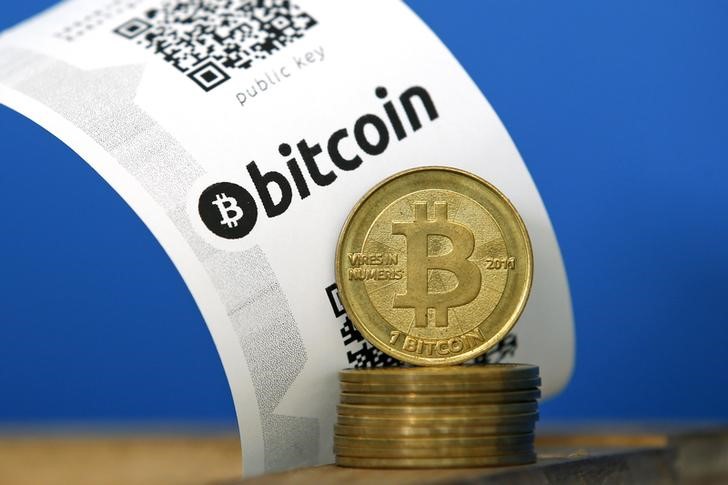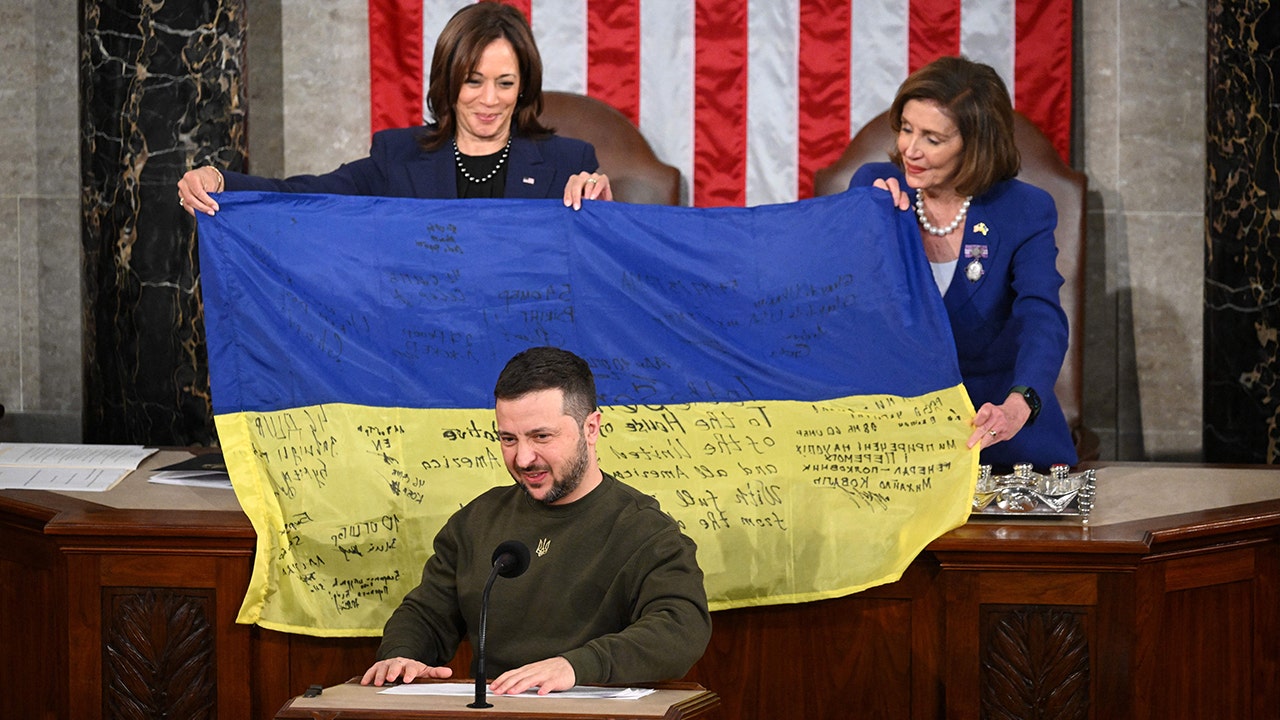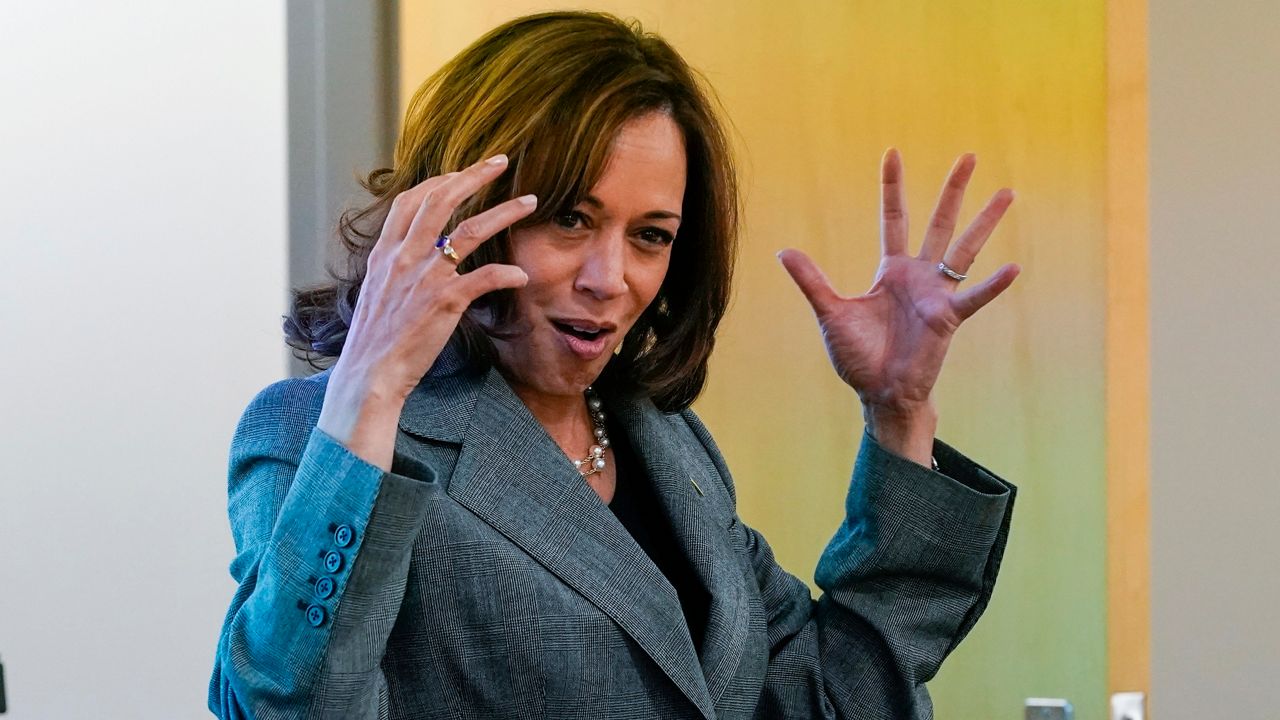Crypto
UN Palestinian aid agency's cryptocurrency wallets investigated over Hamas ties

EXCLUSIVE — An Israeli firm that helped authorities claw back $90 million worth of Hamas-owned cryptocurrency is investigating digital wallets held by the leading Palestinian aid agency for the United Nations, the Washington Examiner has learned.
Lionsgate Network, a Tel Aviv-based company staffed by blockchain analysts, specializes in cash recovery services for investors and was notably enlisted by Israel’s Ministry of Defense to intercept funds linked to Hamas after the terrorist faction’s deadly Oct. 7 attack on the Jewish state. Now, Lionsgate has embarked on a new project: tracking the flow of crypto donations to the U.N. Relief and Works Agency, whose since-fired employees were recently accused by Israel of participating in the Hamas-led massacre, prompting the United States and other countries to pause aid to UNRWA.
“Our company’s vision is to secure crypto transactions and eliminate financial transactions targeting communities around the world,” Lionsgate Network CEO Bezalel Raviv told the Washington Examiner. “There is a loophole in the financial system, and it’s no longer a very small group of people. It’s like 1.5% of the world’s capital — we’re talking about over $1.5 trillion U.S. dollars.”
The startup’s investigation underscores how UNRWA, which has long earned the ire of foreign policy experts and lawmakers over its ties to Hamas, is being comprehensively scrutinized by watchdogs after the Oct. 7 attack. Rep. Brian Mast (R-FL), who sits on the House Foreign Affairs Committee, introduced legislation on Monday that would ban U.S. funds to UNRWA. The Biden administration renewed aid in 2021 to the Palestinian aid agency just three years after former President Donald Trump cut off support to UNRWA over concerns stemming from its ties to terrorism and the hiring of antisemitic employees.
In turn, Biden’s decision has culminated in taxpayers footing the bill for at least $730 million in payments to UNRWA since 2021. The U.S. government said on Tuesday that over 99% of U.S. funds approved by Congress for the UNRWA have already been sent to it — with just $300,000 still on hold.
UNRWA formed in 1949 “to carry out direct relief and works programs for Palestinian refugees.” But critics say it unjustly relieves Hamas, which controls Gaza, of responsibilities to provide basic services to civilians. The agency, which is led by Swiss Italian Commissioner-General Philippe Lazzarini, faces an uncertain future after Secretary of State Antony Blinken asserted that Israeli allegations about its employees participating in Oct. 7 are “highly credible.”
UNRWA has a 501(c)(3) charity in the U.S. that accepts crypto donations, such as bitcoin, a digital asset that, for federal tax purposes, is treated as “property,” according to the IRS and digital software records. The crypto option stems from the UNRWA charity’s partnership in December 2021 with the Giving Block, a fundraising platform for tax-exempt organizations.
Raviv said his company is tracking specific blockchain transactions to see where donations to the Palestinian aid agency end up and is in conversation with the U.S. State Department on certain projects.
While Lionsgate successfully worked to recover cash from Hamas, the terrorist group has become more elusive and shifted its assets around, the CEO told the Washington Examiner. Hamas and other terrorist groups, including Palestinian Islamic Jihad, have increasingly turned to crypto in recent years because its decentralized nature affords secrecy, according to multiple reports.
After Oct. 7, the U.S. government sanctioned the Gaza-based Buy Cash, a company that saw its wallets seized in 2021 by Israel’s National Bureau for Counter Terror Financing “in connection to a Hamas fundraising campaign,” the U.S. Treasury Department said. Crypto coins are stored by users in what are known as digital wallets, which contain information such as private passwords and confidential data, according to Coinbase, the largest crypto exchange in the world.
Lionsgate’s investigation into UNRWA is independent and, for the time being, not on behalf of any clients, according to Raviv.
“Conversations with the State Department are becoming closer because one of the Hamas wallets is still active and over $40 million is moving in and out,” Raviv said.
The Tel Aviv-based analytics and software firm BitOK found Hamas-tied crypto wallets raked in the cash between roughly August 2021 and June 2023, the Wall Street Journal reported.
“Awareness is key,” he said. “We really want to encourage communities and people who are active in the crypto community to look at the problems and solutions.”
Aside from crypto, UNRWA’s charity in the U.S. routinely takes large sums through donor-advised funds, which allow wealthy contributors to shield their names from publicly released financial disclosures. The arrangement is often criticized by watchdogs as a “dark money” loophole.
UNRWA’s charity in the U.S., for instance, accepted $262,578 in 2022 through the Fidelity Investments Charitable Gift Fund, tax forms show.
CLICK HERE TO READ MORE FROM THE WASHINGTON EXAMINER
That year, $109,280 also flowed through the Schwab Charitable Fund to the UNRWA’s U.S. outfit.
UNRWA and the State Department did not return requests for comment.

Crypto
Nigerian Officials Demanded Huge Crypto Payments To Make Cryptocurrency Probe ‘Go Away,’ Binance CEO Claims – Arise News

The CEO of prominent cryptocurrency platform Binance, Richard Teng, unveiled in a blog post on Tuesday that undisclosed individuals in Nigeria sought substantial payments in digital currency to resolve the company’s challenges in the country.
The revelation comes in the wake of the detention of two senior Binance executives by the Nigerian government on February 28. Nadeem Anjarwalla and Tigran Gambaryan were held as part of an investigation into alleged illegal operations and forex rate manipulations.
Teng detailed Binance’s efforts to engage with Nigerian authorities, citing a meeting in Abuja on January 8, where the company faced criminal accusations.
He said that despite repeated requests, Binance did not receive specifics of the allegations, prompting concerns about the fairness of the process.
Teng said, “There were a number of reasons for that, including the sensitivity of the information and getting the opportunity to see the allegations in full and prepare a thorough substantive response.”
“The meeting ended with the Chair confirming they would consider the matter and revert through Binance’s local counsel.
“However, as our employees were leaving the venue, they were approached by unknown persons who suggested to them to make a payment in settlement of the allegations.
“Later that day, our local counsel — representing us at that time — was summoned by the Committee through someone purporting to be their agent, who relayed the Committee’s terms and instructed our local counsel to advise us.
“Counsel reported back that he had been presented with a demand for a significant payment in cryptocurrency to be paid in secret within 48 hours to make these issues go away and that our decision was expected by the morning.
“Our team grew increasingly concerned about their safety in Nigeria and immediately departed.”
The Binance CEO however revealed that the request for payment was declined because it was not seen to be a “legitimate settlement offer”.
According to Teng, Binance made it clear that it would only negotiate a settlement after viewing the pertinent petition or the specifics of all the accusations. Any settlement “must be official, recorded in writing, and signed by all relevant parties,” he added.
Ozioma Samuel-Ugwuezi
Follow us on:
Crypto
Bernstein doubles down on $150,000 target for Bitcoin price By Investing.com

Bernstein analysts are confident that is on its way to $150,000 per coin by mid-2025 despite recent market corrections, the broker said in a research report on Tuesday.
The firm cites a shift from sentiment-driven to structurally-driven demand in Bitcoin markets, led by institutional interest and inflows into ETFs. As Bitcoin resumed its upward trajectory after dipping to a low of around $57,000, Bernstein noted the clearing of excess leverage in futures contracts and a positive reversal in ETF outflows.
A major highlight was the Grayscale Bitcoin Trust (BTC) (NYSE:) reporting its first inflow after 78 consecutive days of outflows, a milestone given its impact on market dynamics.
“Bitcoin’s current position at around $64,000 is just the beginning. The structure of the market is far stronger than during the 2021 euphoria at similar levels, largely driven by clear ETF-driven demand,” the report reads.
The bullish outlook is further supported by the sheer volume of cash flooding into Bitcoin ETFs, amassing nearly $12 billion within just three months of their launch. Bernstein expects this trend to persist, driven by increased allocations from private banks, wealth managers, and institutional investors, projecting around $70 billion in new inflows between 2024 and 2025.
The report also points to favorable regulatory developments and corporate adoption, citing companies like Block integrating Bitcoin into their treasury strategies. Moreover, the stability in Bitcoin’s hash rate post-halving and healthy miner transaction fees indicate a resilient mining sector poised for long-term market growth.
Bernstein expects that higher Bitcoin prices and transaction fees will offer miners a buffer even if production costs double post-halving.
remove ads
.
Mining stocks have lagged behind the Bitcoin rally due to investors favoring a “long Bitcoin, short miners” strategy. The rationale behind this approach is the perceived safety in buying spot ETFs compared to mining stocks, which are susceptible to risks associated with the halving.
“Bitcoin mining dynamics are also supporting the market, with public miners expanding capacity and negotiating favorable terms amidst competitive pressures from AI capital expenditures,” Bernstein added.
With all these factors in place, Bernstein remains confident in their $150K Bitcoin target, viewing current prices as an attractive risk-reward opportunity for investors. The firm believes we are in the early stages of a longer and healthier Bitcoin cycle that could extend well into 2025.
Crypto
Cryptocurrency Price on May 7: Bitcoin falls below $63,700; Shiba Inu, Dogecoin tank 5%

As of 12:14 p.m., Bitcoin was trading 1% lower at $63,649, while Ethereum experienced a 3.5% drop to $3,068. Additionally, altcoins like BNB (-1.1%), Dogecoin (-4.9%), Toncoin (2.6%), Cardano (3.3%), Avalanche (-3.1%), and Shiba Inu (-5.2%) followed suit in the downward trend.
The crypto market sentiment was further impacted by news of significant transfers from FTX-associated addresses and a Wells Notice issued to Robinhood by the SEC, alleging unauthorized digital asset trading categorized as securities.
Crypto Tracker
CoinDCX Research Team noted, “In the short term, both BTC and ETH show bearish price action, though the higher time frame remains bullish. BTC needs to reclaim the $67,000 level, while ETH must surpass $3,250 to regain momentum.”Also Read: Grayscale Bitcoin Trust’s shares jump after first inflow since JanuaryStablecoins accounted for $69.86 billion in volume, representing 91.12% of the total crypto market’s 24-hour volume, according to CoinMarketCap.Within the same timeframe, Bitcoin’s market cap rose to $1.253 trillion, with BTC volume surging by 67.8% to $30.57 billion.Vikram Subburaj, CEO of Giottus, analyzed Bitcoin’s technicals, stating, “Bitcoin, after breaching $65,000 briefly, is consolidating above $63,500 today. The asset has found strong support at the 0.5 fib extension ($60,700), aligned with its 100-day MA at $60,850. Its RSI levels continue to improve towards a neutral territory. Bitcoin can consolidate at these levels for a few more days before it holds $65,000 and turns bullish.”
Regarding Cardano, Rajagopal Menon, Vice President at WazirX, remarked, “Cardano is looking at an accumulation phase which means the network could see more buying activity in the coming days, creating a potential for a price surge. Its technical indicators are favourable and all signs point to a buying activity for investors in the coming days.”
In Tuesday’s trade, Cardano saw a 3.3% decline to $0.4476. Over the past month, the crypto token dropped by 24%, yet it rallied by 17% over the last year.
(Disclaimer: Recommendations, suggestions, views and opinions given by the experts are their own. These do not represent the views of The Economic Times)
-

 World1 week ago
World1 week agoRussian forces gained partial control of Donetsk's Ocheretyne town
-
Movie Reviews1 week ago
Challengers Movie Review
-

 Politics1 week ago
Politics1 week agoHouse Republicans brace for spring legislative sprint with one less GOP vote
-

 World1 week ago
World1 week agoAt least four dead in US after dozens of tornadoes rip through Oklahoma
-

 Politics1 week ago
Politics1 week agoWashington chooses its wars; Ukraine and Israel have made the cut despite opposition on right and left
-

 Politics1 week ago
Politics1 week agoDems disagree on whether party has antisemitism problem
-

 Politics1 week ago
Politics1 week agoAnti-Trump DA's no-show at debate leaves challenger facing off against empty podium
-

 Politics1 week ago
Politics1 week agoStefanik hits special counsel Jack Smith with ethics complaint, accuses him of election meddling



















